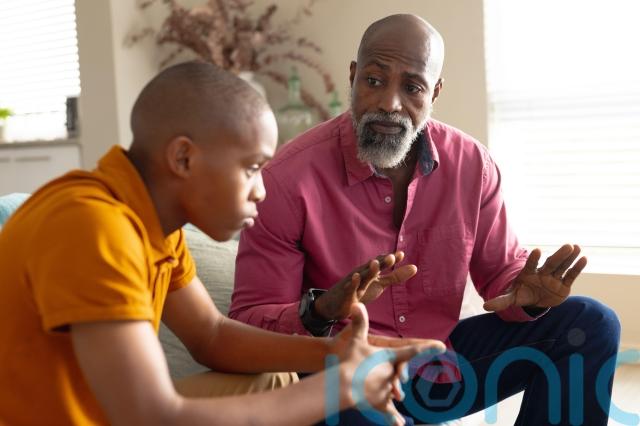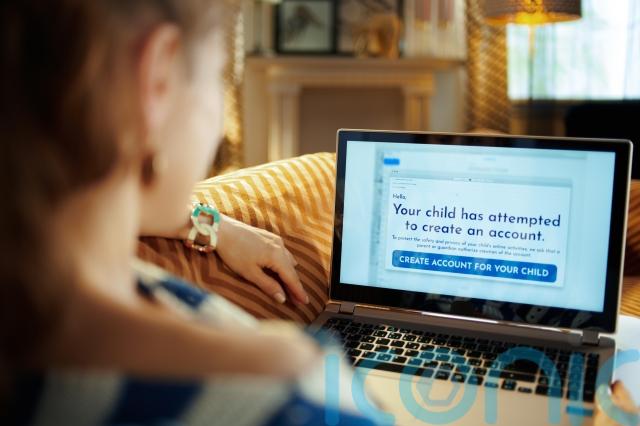
Under the Online Safety Act, sites displaying or publishing pornographic content will be expected to use age assurance measures, including photo ID matching on users and credit card checks.
New draft guidance, published by Ofcom, outlined how platforms can better protect children from pornography, to ensure they adhere to new internet laws.
The online safety regulator also recommended verified facial age estimation technology and mobile network age checks which automatically block age-restricted websites if the operator knows that the user is under 18.

“Pornography is too readily accessible to children online, and the new online safety laws are clear that must change,” Ofcom chief executive Dame Melanie Dawes said.
“Our practical guidance sets out a range of methods for highly effective age checks. We’re clear that weaker methods – such as allowing users to self-declare their age – won’t meet this standard.”
Technology Secretary Michelle Donelan said: “Pornography can have an absolutely devastating impact on children and their view of healthy relationships.
“Right now, 13 is the average age at which a child first encounters it online. This is exactly why I made protecting children from pornography a key objective of our Online Safety Act.
“Companies must now work closely with Ofcom to ensure they have robust checks in place to stop children from seeing harmful content that they can never unsee.”

So how can children be protected?
Set parenting controls
With the content and privacy restrictions in screen time, more parents are able to block or limit specific apps and features on their child’s device.
“Setting parenting controls is so important to try and stop this content, as well as using time limits that are monitored daily,” said Amanda Jenner, parenting expert and founder of My Carry Potty.
“There are a number of apps [and software] that can block and filter this explicit content.”
These include FamiSafe, Net Nanny, Norton Family Parental Control and Safe Surfer.
Speak to your children
Having open conversations with your children at the appropriate time will always be beneficial for the long run.
“Make sure you speak to your children about appropriate online behaviour and content, this needs to be done on a regular basis,” said Jenner. “Educating them of the risks and dangers of online content is vitally important.”
Lynnette Smith, lead and founder of Big Talk Education added that it’s vital for parents to play an active role in protecting their children.
“Parents and carers can do this in several ways, [but] the first being to introduce [talking about] pornography from a young age in a very gentle age-appropriate way,” said Smith. “The word pornography would of course never be used [until much older].
“We deliver workshops to reception children [and upwards] where we use a cartoon drawing to explain what is appropriate to watch, what isn’t inappropriate to watch and why.

“We explain that there are some programmes on the TV which are just for adults and that not all adults watch them. There might be people with no clothes on, swearing or scary things which could give them nightmares.
“We explain that their brains are like sponges and that once they have seen or heard something like this it is hard for them to forget. We then go on to talk about the best thing to do if someone who is looking after you puts something like this on the TV.
“We stress the importance of telling a trusted adult too. Parents and carers can have similar conversations with their children and in addition support schools in the delivery of RSE[relationship and sexuality education] as there is a lot of focus in these sessions around online safety.”
Keep computers in public places
Most children tend to have their own personal iPads, laptops and mobile phones, but having it being used in a communal space could add an extra layer of precaution.
“Keep computers in areas where you spend most of your time as a family, this makes it easier for you to keep an eye on what they are looking at.”
This will also help parents play an active role in monitoring online activity.
“The Online Safety Act 2023 is a great step forward and should help to empower children to have good online experiences,” said Smith.
“However, it will only help to protect children if parents or carers are ensuring that their children are using the correct date of birth when setting up accounts within online games and on social media. Otherwise they become more of a target for adult content.
“It is important to remember that online activity can be a very positive experience. It is a great way to connect with family and friends and a great space to learn but parents and carers must take an active role in helping to keep their children safe from inappropriate online content.”
Don’t be judgemental
“Children can become curious at around 13, so it’s important you openly talk about what is correct to view on screens,” said Jenner.
“They also need to feel like they can approach you if they have made a mistake or opened something they shouldn’t. If we punish them this will close all communication with our children which is just as dangerous.”
Subscribe or register today to discover more from DonegalLive.ie
Buy the e-paper of the Donegal Democrat, Donegal People's Press, Donegal Post and Inish Times here for instant access to Donegal's premier news titles.
Keep up with the latest news from Donegal with our daily newsletter featuring the most important stories of the day delivered to your inbox every evening at 5pm.